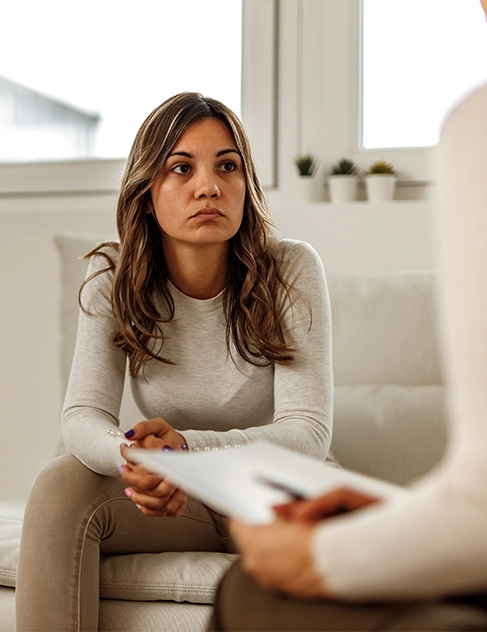Our facility is located centrally to both Ottawa and the GTA, allowing us to provide exceptional care to many people in Ontario. CBT for mental health is only one of many benefits of our inclusive rehab program. While cognitive behavioural therapy is popular and effective for many, we also recognize that not everyone is the same.
This is why we offer such a wide range of therapies, techniques, and other services. If you’re wondering whether CBT might work for you, consider three main things:
- Is your goal (or one of them) to learn practical skills for better managing our day-to-day life?
- Are you ready, willing, and committed to practicing strategies between sessions to see the most effective results?
- Are you ready and willing to be involved in your therapy? For example, journaling and/or keeping logs of thoughts, feelings, and behaviours.
These questions are a good place to start, but our professional counselors and therapists will help you determine the best treatment plan for yourself. They’ll ask about things like your physical and emotional symptoms, specific issues you’re currently struggling with, and your personal goals.
They may determine that the best course of action for you includes some of our other forms of therapy, either in place of CBT or in addition to:
- Solution-focused therapy
- Spiritual therapy
- Acceptance and commitment therapy
- Mindfulness-based stress therapy
- Work-life balance therapy
- And more
In addition to our many different forms of therapy, we offer a range of holistic therapies and methods as well. We believe that to get optimal, long-lasting results, you need a comprehensive approach that includes the mind, body, and spirit. This is why we combine multiple forms of therapy with other activities, such as:
- Yoga
- Journaling
- Art therapy
- Meditation
- Motivational speakers
- Healthy, chef-prepared meals
- NA, CA, and AA meetings, locally and in-house
- And more
These things have incredible benefits both on their own and combined. Yoga and meditation help you relax and maintain a clear head, while art and journaling can help you express yourself and learn things you may not have otherwise realized.
CBT is designed to help you create better patterns, coping mechanisms, and behaviours while improving your self-talk and self-esteem. Our holistic practices combine with this beautifully by helping you create a positive headspace and helping you stay mentally fit for intensive therapy. They may also help you create additional good habits, as things like yoga, meditation, and journaling are great practices to carry through into your regular life. There are plenty of mental, physical, and emotional benefits when you practice these things regularly.


